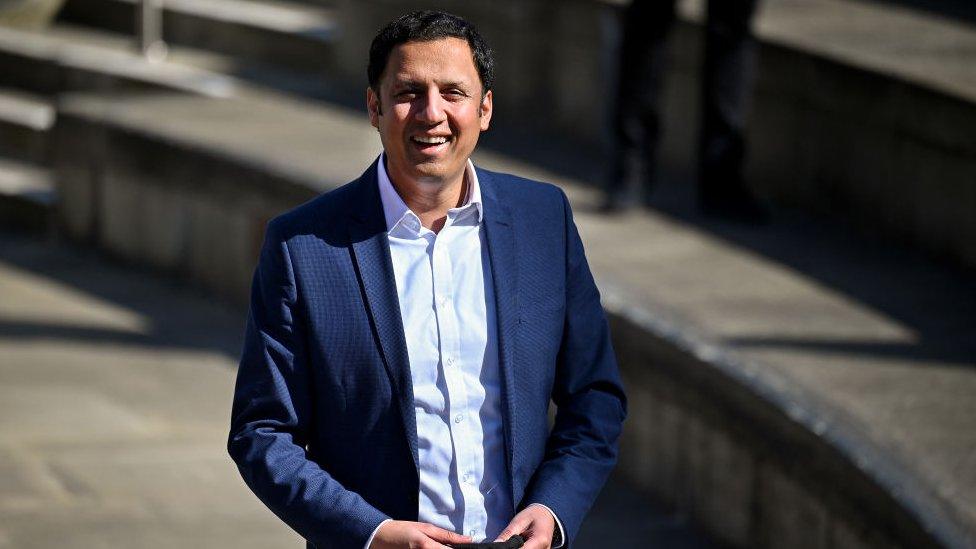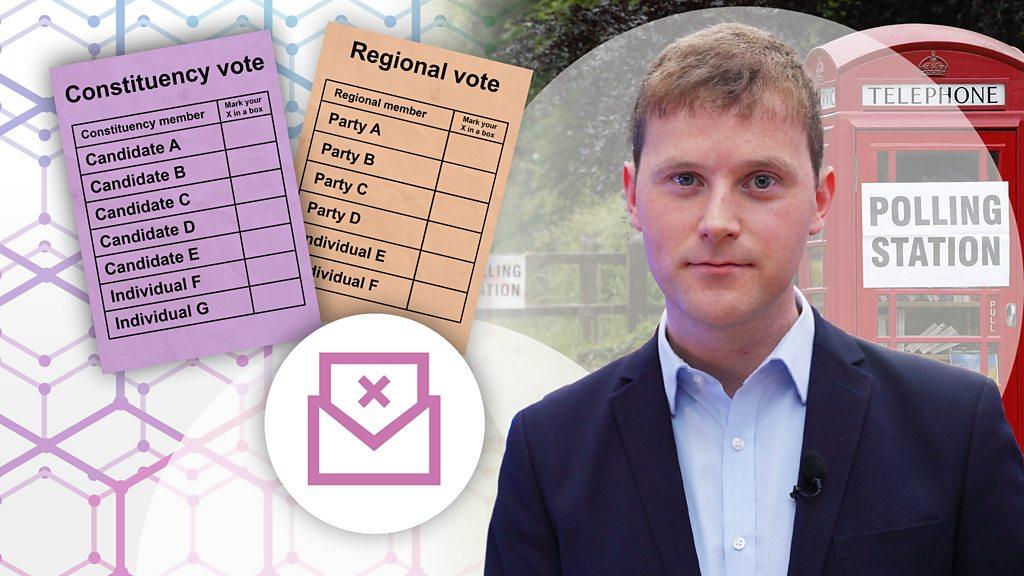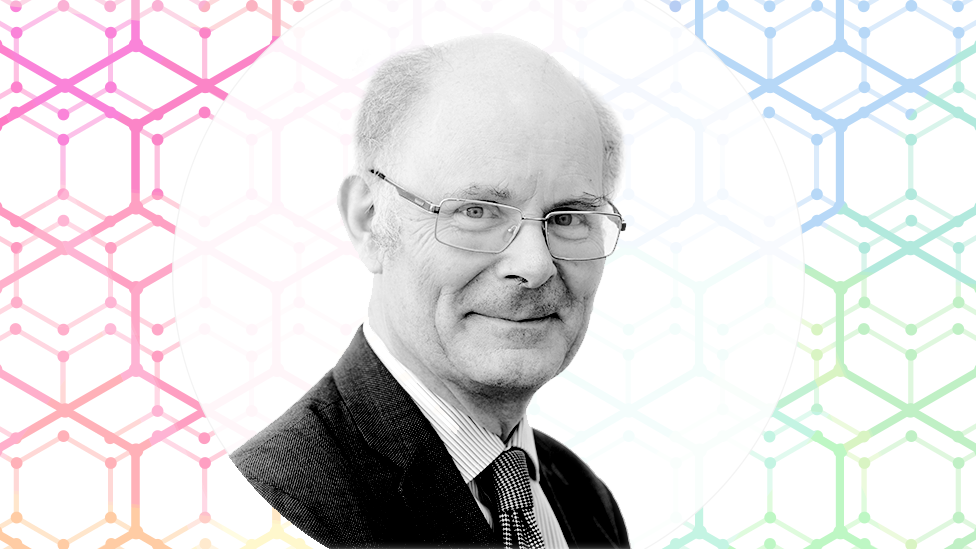Scottish election 2021: Anas Sarwar 'realistic' about 20-year Labour decline
- Published

Anas Sarwar became leader of Scottish Labour in February
Anas Sarwar has said he does not believe he can turn around his party's 20-year decline in Scotland before the Holyrood election on 6 May.
Mr Sarwar, who was elected Scottish Labour leader in February, said that he would love to be first minister, but was "realistic" about the prospect.
He denied being "defeatist", insisting instead that he was being honest.
Despite dominating Scottish politics for 50 years, Labour's share of the vote has declined in recent years.
Mr Sarwar told BBC Radio's Good Morning Scotland programme that he was "not naïve about the scale of the challenge" his party faced.

SCOTLAND ALERTS: Get extra updates on BBC election coverage

He said: "Three days before I became leader we were at 14% in the polls - we've made progress on that in the last five weeks.
"I am being honest in saying I don't think I can turn around the decline of the Labour Party in Scotland for the last 20 years in 10 weeks.
"I can reverse the decline and want us to start rebuilding the Labour Party. I want to give the people of Scotland the Labour Party they deserve."
On the subject of Scottish independence, Mr Sarwar said he would not be in favour of another referendum, telling the programme: "I don't believe in independence, I don't believe in a referendum. I think that would be wrong for us, particularly coming through a recovery."
Asked why he would not allow another independence vote, Mr Sarwar said that "four and half years of chaos" for Brexit showed these were not "light switch moments".
"What I'm doing is having an honest conversation", he said.
"I don't believe in independence, I don't believe there's a quick fix to the constitutional crisis through this recovery. Because I don't believe in it, I'm not going to argue for it."


Anas Sarwar is very new to the job of Scottish Labour leader - but it is actually technically not the first time he has led the party.
A former deputy leader, he was left in charge for two months in 2014 between the regimes of Johann Lamont and Jim Murphy.
The scale of the challenge he faces now is illustrated by how far Labour has fallen between those two tenures. In 2014, Labour had 41 MPs in Scotland. They were comfortably in second place at Holyrood, with more than double the number of seats the Tories had.
Today, they languish in third spot at Holyrood and have just a single MP at Westminster. They finished fifth in the European Parliament elections in 2019.
Mr Sarwar was dropped into the hot seat less than 10 weeks before the Holyrood election, with the task of turning all of that around.
This is why he is open about being happy to settle for second place in May - for a party which was recently in freefall, even that would be a real change in fortunes.

Scottish Labour launched their ad van campaign last week, calling on voters to use their second vote to support the party - and not to return the Scottish Conservatives as the main opposition.
The party has yet to launch their manifesto but their focus has consistently been on recovery from the Covid-19 pandemic.
Mr Sarwar also spoke about his party's £1.2bn job creation scheme - a figure he said he was "not shy about" - as well as the Scottish staycation policy, which he said would encourage people to enjoy culture and tourist attractions in Scotland.
Asked where the money would come from to fund the policies, he said: "If we look at the support packages we put in place, this is a drop in the ocean compared to that.
"There are billions of pounds of [unallocated] money, the Institute for Fiscal Studies (IFS) has shown, both in recurring spend and non-recurring spend."

SCOTLAND'S ELECTION: THE BASICS
What's happening? On 6 May, people across Scotland will vote to elect 129 Members of the Scottish Parliament (MSPs). The party that wins the most seats will form the government. Find out more here.
What powers do they have? MSPs pass laws on aspects of life in Scotland such as health, education and transport - and have some powers over tax and welfare benefits.
Who can vote? Anyone who lives in Scotland, is registered to vote and aged 16 or over on 6 May is eligible. You can register to vote online, external.

Mr Sarwar also said that while he thought the SNP were "wrong on so many issues", he was willing to work with other parties on individual issues.
However when it came to disagreement or abuse within his own party - specifically its complaints procedure - he said believed there was still work to do.
He said he wanted a system that was fair and made "quicker decisions" and enabled people to "learn from their mistakes".
He added: "As someone who has been through the party's disciplinary process as a complainer, I know how frustrating it is.
"They didn't support me at the time and I'm determined to change that. I've only been in the job five weeks, but what I want us to do is a much quicker and more robust response."

POLICIES: Who should I vote for?
CANDIDATES: Who can I vote for in my area?
PODLITICAL: Updates from the campaign

- Published15 April 2021

- Published13 April 2021

